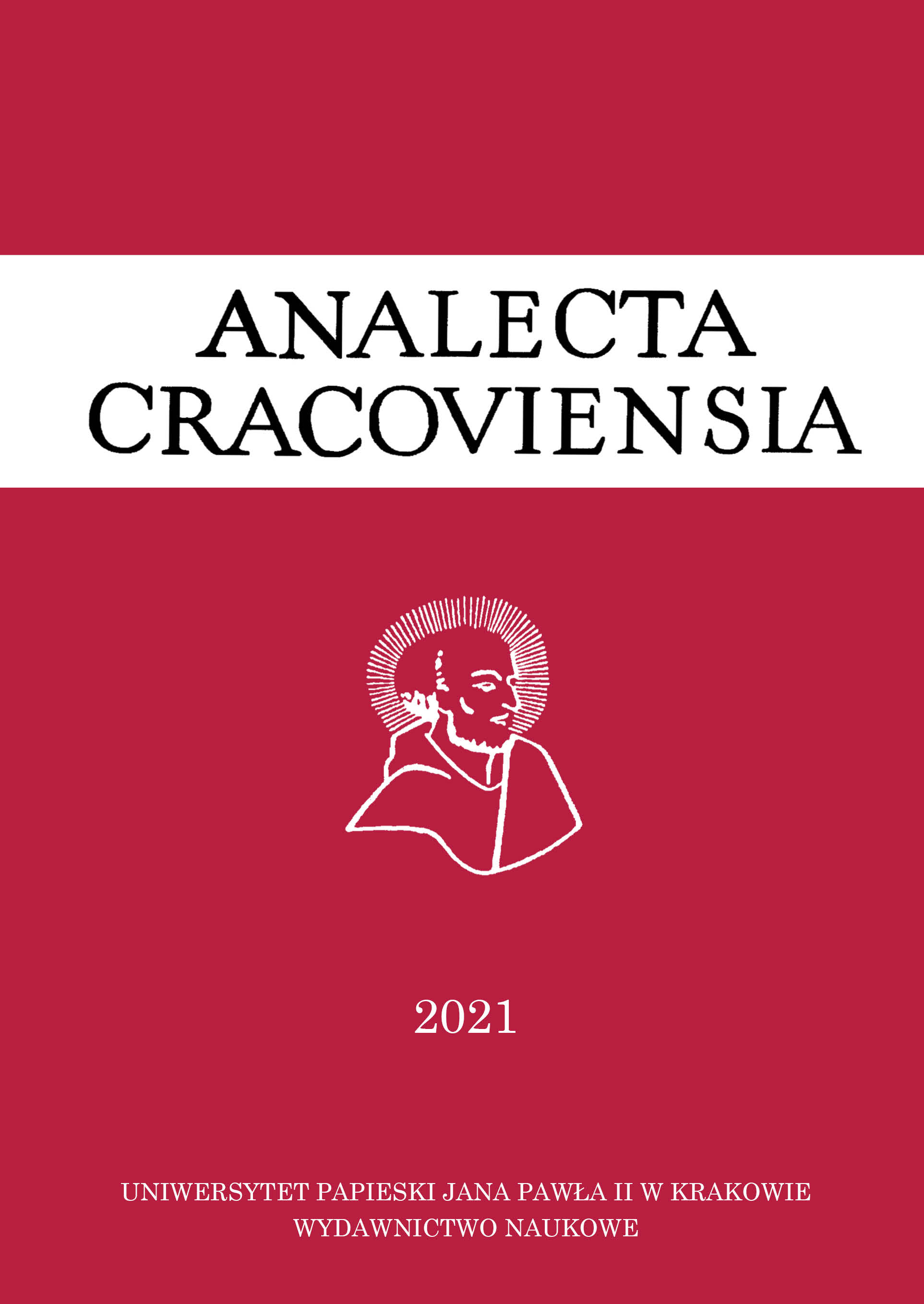Sexual Ethics, Marriage and Family as Enslavement or a Refuge of True Freedom? An Analysis of the Defense of Marriage and Family in the Writings of Gilbert Keith Chesterton
DOI:
https://doi.org/10.15633/acr.5303Keywords:
Chesterton, cultural revolution, dissolution of marriage, family, sexual ethicsAbstract
The cultural revolution proceeds through history bringing liberation to the oppressed man. After liberating him from the oppression of the social class, it proclaims liberation from cultural norms, sexual ethics, unbreakable marriage, the difficulties caused by having a family, and even the liberation of a person from his or her own specific gender. But is it really a liberation? According to Gilbert Keith Chesterton, who witnessed the beginnings of social changes that took place at the turn of the 19th and 20th centuries, the revolution in manners may lead to a more sophisticated form of bondage – the bondage of the mind.
The article examines the defense of sexual ethics, marriage and family as presented by Chesterton in his writings, trying to answer the questions: can Chesterton’s voice be relevant and intriguing today; can it complement the present discussion with a new point of view.
The article indicates that the writer changes the perspective. He points that it is not Catholic sexual ethics, the indissolubility of marriage and the family that enslave man. But the constant changes, sexual freedom and divorce lead to the weakening of human will and intellectual enslavement. Because true freedom is hidden in a non-obvious and paradoxical way precisely in adherence to sexual ethics, a stable marriage and family, which are not only Christian but also extremely rational ideals.
References
Bloom A., Umysł zamknięty, przeł. T. Bieroń, Poznań 1997.
Chesterton G.K., Co jest złe w świecie, tł. M. Reda, Sandomierz 2013.
Chesterton G.K., Czterech niewinnych złoczyńców, tł. M. Reda, Sandomierz 2014.
Chesterton G.K., Dla sprawy, tł. J. Rydzewska, Warszawa 2014.
Chesterton G.K., Eugenika inne zło, tł. M. Reda, Sandomierz 2012.
Chesterton G.K., Heretycy, tł. J. Rydzewska, Warszawa-Ząbki 2004.
Chesterton G.K., Obrona człowieka. Wybór publicystyki (1909–1920), tł. J. Rydzewska, Warszawa 2008.
Chesterton G.K., Obrona rozumu. Wybór publicystyki (1930–1936 oraz wydania późniejsze), tł. J. Rydzewska, Warszawa 2014.
Chesterton G.K., Obrona świata. Wybór publicystyki (1901–1908), tł. J. Rydzewska, Warszawa 2006.
Chesterton G.K., Ortodoksja. Romanca o wierze, tł. M. Sobolewska, Warszawa-Ząbki 2008.
Chesterton G.K., Zabobon rozwodu, tł. M. Reda, Sandomierz 2012.
Chesterton G.K., Źródło i mielizny, tł. J. Rydzewska, Warszawa 2016.
Gałuszka P., Karol Wojtyła i „Humanae vitae”. Wkład arcybiskupa krakowskiego i grupy polskich teologów w encyklikę Pawła VI, tł. z oryginału włoskiego K. Stopa, Warszawa 2018.
Dostojewski F., Dzieła wybrane, t. 6: Bracia Karamazow, tł. A. Wat, Warszawa 1959.
Freud Z., Wstęp do psychoanalizy, tł. S. Kempnerówna, W. Zaniewicki, Warszawa 1957.
Hylewski M., Burdzik T., Teoria krytyczna Szkoły Frankfurckiej jako krytyka kultury masowej, „Kultura – Historia – Globalizacja” (2014) nr 15, s. 115–137.
Kuby G., Globalna rewolucja seksualna. Likwidacja wolności w imię wolności, tł. D. Jankowska, J. Serafin CSsR, Kraków 2013.
Kupczak J., Amoris laetitia. Konflikt interpretacji, Poznań 2020. Kupczak J., Źródła sporu o „Amoris laetitia”, Poznań 2018.
Laskowska E., Przywrócić wolność intelektualną w „epoce nonsensu”. Analiza myśli G.K. Chestertona, „Studia Nauk Teologicznych” 15 (2020), s. 245–262.
Łysień L., Groza pandemii, Kraków 2021.
Miłosz C., Zniewolony umysł, Paryż 1980.
Orwell G., 1984, Kraków 1981.
Peeters M.A., Globalizacja zachodniej rewolucji kulturowej. Kluczowe pojęcia, mechanizm działania, tł. G. Grygiel, Warszawa 2010.
Petry-Mroczkowska J., Amerykańska wojna kultur, Warszawa 1999.
Downloads
Published
Issue
Section
License
Copyright (c) 2022 Ewa Laskowska

This work is licensed under a Creative Commons Attribution 4.0 International License.
Authors who publish with this journal agree to the following terms:
- Authors retain the copyright and full publishing rights without restrictions, and grant the journal right of first publication with the work simultaneously licensed under a Creative Commons Attribution 4.0 International License that allows others to share the work with an acknowledgement of the work's authorship and initial publication in this journal.
- Authors are able to enter into separate, additional contractual arrangements for the non-exclusive distribution of the journal's published version of the work (e.g., post it to an institutional repository or publish it in a book), with an acknowledgement of its initial publication in this journal.
- Authors are permitted and encouraged to post their work online (e.g., in institutional repositories or on their website) prior to and during the submission process, as it can lead to productive exchanges, as well as earlier and greater citation of published work (See The Effect of Open Access).

